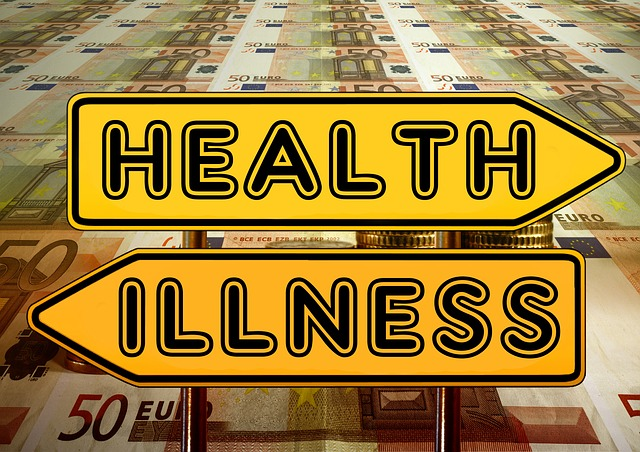Understanding Health Insurance for Traveling Abroad
For those planning to travel abroad, it is important to understand how health insurance works when abroad. This article seeks to explain the key considerations travelers should make when selecting health insurance coverage before leaving home. From understanding what coverages are available to details on filing claims and handling medical bills, this article provides the information needed for a worry-free journey abroad.
Read on to learn all about health insurance for traveling abroad, so you can have peace of mind during your trip.
What is Travel Health Insurance?
Travel medical insurance, also known as travel health insurance or travel medical coverage, is a type of insurance that provides protection for medical expenses incurred while traveling abroad. It’s designed to fill the gap that traditional health insurance can’t cover – so what does it offer?
Travel medical insurance gives you key benefits in case of an emergency, such as evacuation, care and treatment costs, trip cancellation and reimbursement for medical bills. This makes it especially important for international travelers who may not have access to adequate healthcare in their destination country. With a travel medical insurance plan, you can rest assured knowing you’re covered if something unexpected happens on your journey.
It’s worth noting that this isn’t the same as regular travel insurance which usually covers things like lost luggage or cancelled trips – instead, it focuses on providing coverage for any necessary medical treatments during your travels. So make sure you understand the differences between these two types of policies before selecting one!
What Does Travel Health Insurance Cover?
Travel medical insurance – what does it cover? Emergency medical expenses, medical evacuation and accidental death or dismemberment. But the limits and eligible expenses vary from policy to policy, so make sure you get one with robust coverage for your needs. Oh, and don’t forget: routine checkups aren’t typically covered by travel medical insurance.
Covid-related costs? Check if your policy covers them before buying! Many plans now provide this type of coverage – just read the fine print first. Allianz Travel Insurance offers a worldwide network of prescreened hospitals in case of an emergency abroad.
Travelers age 65+ may benefit from temporary health insurance when traveling outside their home country – it provides coverage for doctor’s visits and hospital stays during a specified period of time.
Who Needs Travel Health Insurance?
Travel medical insurance is like a safety net for international travelers, especially those who are venturing to countries with limited access to medical care. It’s also essential for thrill-seekers engaging in extreme sports or adventure activities.
The Travel Select plan from Allianz offers lower coverage limits than some of its rivals, so it’s important to weigh up the options before making your decision. Plus, you get 24/7 support from an expert team if something goes wrong – and mobile technology can be your lifeline no matter where you are in the world.
So what should you consider when selecting the best travel medical insurance plan? Understand the coverage, benefits and limitations of each policy – then make an informed choice that meets your needs.
How Does Travel Health Insurance Differ from Regular Health Insurance?
When traveling abroad, travel health insurance is a must, as domestic health insurance rarely covers medical expenses incurred outside the US. Travel health insurance is designed to provide coverage for medical emergencies, medical evacuations and other health-related issues that may arise while traveling abroad. Regular health insurance plans generally only provide coverage if you are in-network in the US or a foreign country, while travel health insurance is specifically designed to provide coverage outside of normal health insurance networks.
Seniors are particularly likely to need travel health insurance, as Medicare does not pay for health care outside the US. Therefore, if a senior needs medical attention while traveling abroad, they need to purchase a travel health insurance policy in order to be covered.
Travel medical insurance is different from health insurance. It only covers trips for a limited period of time and is meant to compliment existing health insurance when travelling outside of your network coverage area. It does not cover routine medical expenses, such as doctor’s visits, prescription drugs and vaccinations, which are usually covered by domestic health insurance plans. Additionally, travel medical insurance does not cover trip cancellation or trip interruption, which are covered by comprehensive travel insurance plans.
Do I Need Travel Insurance if I Have Health Insurance?
Having health insurance is not enough to protect your health while travelling. Do you know why? It’s because health insurance plans often don’t cover you when you’re out of the country, and many multi-trip plans require a primary health insurance policy in the US for coverage. Even if your plan does provide coverage abroad, it may not offer the same level of coverage as a stand-alone travel medical insurance policy.
So what should you do? Research your policy and determine if it will give adequate protection in case of an emergency overseas. You might also consider buying a short-term supplemental policy to lower expenses and reduce potential out-of-network costs for emergencies. Plus, some travel medical policies include emergency benefits like evacuation that aren’t covered by regular health insurance plans – giving you peace of mind during your trip!
Trip cancellation insurance is another type of coverage that could be included with travel medical policies. This covers reimbursement if illness or injury forces you to cancel a trip, or even if there’s an outbreak requiring cancellation – plus hotel bills, rental car fees and more associated with interruption!
In conclusion, purchasing travel medical insurance in addition to health insurance can help safeguard your wellbeing while travelling abroad – providing extra protection against unexpected illnesses or injuries, as well as covering costs related to cancellations or interruptions due to disease outbreaks.
What Is Covered by Travel Health Insurance?
Travel health insurance plans offer reimbursement for medical care following an emergency, as well as arrangement and payment for medical evacuation if needed. But what else do they provide? Short-term travel health insurance plans come with limited trip protection benefits such as Trip Interruption coverage, Baggage Loss coverage, Accidental Death and Dismemberment benefits, and Hazardous Sports riders – though the exact coverage varies by plan.
Comprehensive travel medical insurance policies cover a range of expenses related to illness or injury while on a trip – including hospital stays and treatment for covered injury or illness – plus repatriation, urgent medical attention, emergency hospital treatment and more. Business travelers may also benefit from special policies that include comprehensive travel insurance covering multiple trips in the same year; however these usually require primary US medical insurance coverage.
Finally, international trips are also covered by travel medical insurance plans which typically provide reimbursement for medical bills up to the policy’s limits along with other benefits like emergency care and evacuations if necessary. So make sure you check out all your options before deciding on a plan!
How Much Does Travel Health Insurance Cost?
Travel medical insurance is a wise investment for any international traveler, like a life preserver in the ocean of uncertainty. An average plan can cost less than $3 per day and provides coverage that could be worth much more than the initial cost – covering medical expenses, emergency medical evacuation, trip cancellation and interruption, and other eligible expenses.
Comparing comprehensive travel insurance to stand-alone plans reveals prices starting at $117.94 up to $375. Deductibles can be removed from single trip policies but this will increase the policy’s cost – for example, a one-month trip to Costa Rica in June 2023 for a 30-year-old may cost $30.30 with a deductible of $250 or $37.88 without it. John Hancock’s Gold plan is also pricey but competitive when compared to top competitors’ offerings.
The price tag on travel medical insurance varies depending on destination; rates are different if you’re visiting the US versus somewhere with cheaper healthcare options available. If you want 100% reimbursement for prepaid nonrefundable deposits if your journey is interrupted or canceled due to severe weather then filing a claim is necessary – something comprehensive travel insurance may provide coverage for too (alongside unexpected illness, multi-trip plans and trip interruption).
In summary, travel medical insurance should not be overlooked as an essential part of planning an overseas adventure! The costs vary based on type of coverage desired and destination so it’s important to compare plans carefully before selecting one that best meets your needs – after all, peace of mind has no price tag!
How to Choose the Best Travel Health Insurance Plan
Traveling abroad can be a wonderful experience, but it is important to plan for the unexpected. Travel health insurance provides protection in the event of an illness or injury while away from home. When deciding on the best travel health insurance plan, it is important to consider coverage levels that fit both budget and trip needs.
The first step in determining which plan is best for a given trip is to compare policies to determine which offers the best coverage for your needs at an affordable cost. Different types of plans may be available and the best one for you will depend on the type of trip and type of coverage desired. Consider coverage for emergency and/or routine medical services overseas, payments to hospitals directly, and read the terms of an insurance policy to make sure it fits your needs. Additionally, it may be beneficial to have additional protections through a travel credit card. Some countries may also require proof of travel medical insurance prior to entry.
It may be more convenient and cost-effective to purchase an annual travel insurance plan as opposed to a single-trip policy. This type of plan allows travelers to be covered for multiple trips over the course of the year. It is important to read the fine print when planning a trip. Check for any restrictions on coverage related to disease outbreaks at the intended travel destination.
When selecting a travel insurance policy, consider the length of your trip and the type of coverage you need. Most policies offer varying levels of coverage typically ranging from $50,000 to $2,000,000; choose an amount that provides peace of mind. It is also important to consider the type of travel insurance provider you choose. Travel Insured International* are industry leaders in offering comprehensive travel insurance. They provide protection, products and services – both domestic and international.
In addition to medical coverage, consider if you need coverage for trip cancellation, trip interruption, rental car coverage, and emergency medical evacuation or repatriation. Comprehensive travel insurance plans may also include benefits such as trip delay, baggage loss or delay, and travel inconvenience coverage. When evaluating a plan, look for robust coverage and 24/7 customer service for international trips.
Ultimately, the best travel health insurance plan is the one that fits your needs and provides the most peace of mind. Be sure to research different companies, explore different policies, and understand what type of medical insurance is needed. This research will ensure that you are getting the best option for your trip when it comes to travel medical insurance.
Tips to Prepare for an International Trip
Traveling abroad can be an exciting and rewarding experience, but do you know the necessary precautions to take for a safe and enjoyable trip? One of the most important things to consider when planning a trip abroad is travel medical insurance. Researching and comparing different plans before purchasing a policy will ensure that you get comprehensive coverage. Additionally, contact your regular health insurance provider to inquire about global benefits outside of your home country.
The five major U.S. airlines – Alaska, American, Delta, JetBlue and United – pledge five advantages in case of flight cancellation or delay due to circumstances within their control. Before embarking on an international journey, familiarize yourself with COVID-19 testing requirements at your destination as well as any quarantine periods associated with it; an interactive map online can provide this information.
Be sure to have the contact information for your travel insurance provider’s 24-hour Emergency Assistance program handy in case of medical emergency while abroad; also remember that reimbursement is only possible if approved by the insurer prior to treatment! Lastly, ask for copies of all records from medical care providers so you have them ready when filing claims with your insurance provider later on.
By following these tips, travelers can make sure their overseas adventure goes off without a hitch! With proper preparation and understanding of travel medical insurance policies comes peace of mind knowing that they are protected in any unexpected situation during their travels abroad!
Summary
Traveling outside of one’s home country can be an enjoyable and rewarding experience, however there is an element of risk and it is important to be prepared. Travel health insurance will help protect against the financial losses associated with medical emergencies, evacuations or unexpected trip interruptions. A range of travel insurance plans exist, so travelers should compare policies thoroughly to find the best option for their needs.
Once a plan is purchased, travelers can enjoy the peace of mind that comes from knowing they are protected in the event of an unforeseen incident. From COVID-19 testing to having the right documents, it is necessary to do the research and come prepared as much as possible before embarking on an international adventure.
Travel health insurance is an essential item for any traveler and having it can often be the difference between a stress-free experience and a stressful one.
Frequently Asked Questions
Does health insurance work when traveling?
For traveling, domestic health insurance often does not cover you, so travelers may need to purchase travel medical insurance in order to receive coverage. While this form of insurance is only valid during your trip, it can offer peace of mind that regular health insurance may be lacking.
How do i get healthcare while traveling?
If you’re traveling, you can get access to healthcare by looking into the IAMAT network of physicians, hospitals and clinics, as well as travel agencies, hotels, and credit card companies providing contact information for local health care resources.
With these options, you have the necessary information to stay in good health while travelling.
Can i get travel insurance for medical only?
Yes, you can get travel insurance for medical only. Travel medical insurance is offered either as part of comprehensive travel insurance plans or can be purchased as a stand alone plan, allowing travelers to select the coverage they need.
This type of insurance is designed to provide coverage for medical expenses incurred while traveling abroad, including emergency medical evacuation and repatriation. It can also be useful.











